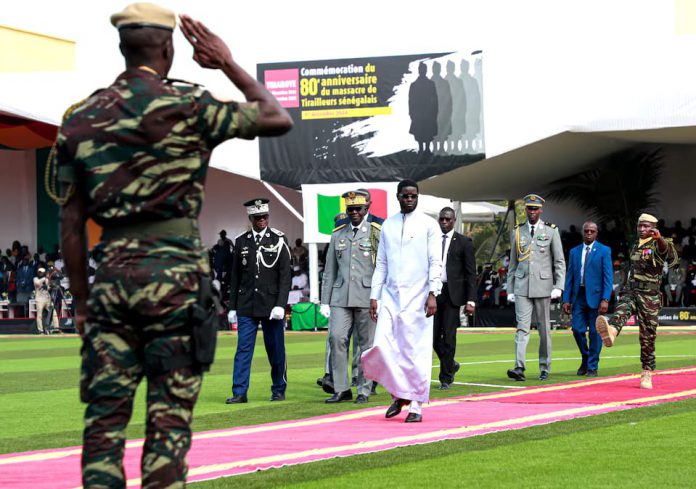Senegal’s government on Sunday commemorated the 80th anniversary of a massacre of African soldiers who fought for France during World War 2 (WW2).
The African soldiers were gunned down by French troops in 1944 for demanding fair treatment and payment on their return.
The West African country has long been demanding its former coloniser take responsibility, officially apologise and properly investigate the massacre that took place in Thiaroye, a fishing village on the outskirts of Senegal’s capital Dakar.
The event, which renewed these demands, comes as France is losing influence over its former African colonies, many of which have turned to Russia for security instead.
“The riflemen sacrificed everything. They gave of their youth, they gave of their blood, they gave of their flesh for freedom and world peace,” Senegalese President Bassirou Diomaye Faye told guests and reporters.
Accounts of the massacre vary, as does the death toll, which French ex-president Francois Hollande raised to at least 70 from 35 during a visit to Thiaroye in 2014.
Historians said hundreds may have died in the confrontation with colonial authorities.
The ceremony, which France’s foreign affairs minister attended alongside other African heads of state, started with a visit to the Thiaroye military cemetery to lay flowers.
A printed guide to the ceremony described the “horrific repression” of members of the Senegalese infantry unit, who were surrounded and gunned down for requesting due compensation.
A few days before the commemoration, French President Emmanuel Macron wrote a public letter to his Senegalese counterpart Faye in which he referred to the killings as a “massacre”.
Faye said Macron’s acknowledgement was a significant step in the process of rehabilitating the honour and dignity of victims.
France’s foreign minister Jean-Noel Barrot, in a speech, said his country had recognised that on that day, “a chain of events was set in motion that led to a massacre”.
Gaspard Mbaye, head of an association dedicated to the soldiers’ memory, told Reuters he was disappointed because he expected more from the French government.
“They continue to conceal the truth and try to divert attention,” Mbaye said.












